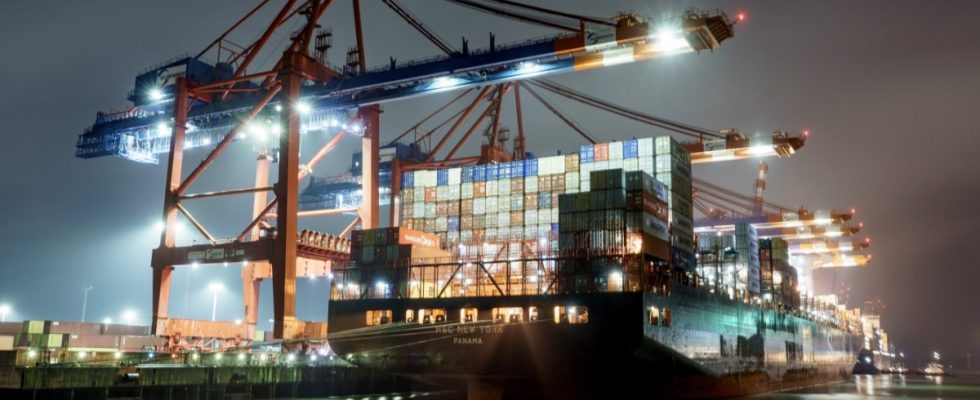When buying chocolate bars or T-shirts, Europe’s consumers should be able to be sure that no child or forced labor was used during production or that nature was harmed. In the future, an EU directive will oblige local companies to ensure that suppliers worldwide comply with human rights and environmental protection regulations. Violations result in penalties of up to five percent of sales as well as claims for damages. The legal act is stricter and more comprehensive than the previously applicable German supply chain law.
On Thursday night, negotiators from the European Parliament and the Council of Ministers, the legislative chamber of the member states, agreed to the final version of the guideline. Parliament and the Council of Ministers still have to agree to the compromise – this is mostly a mere formality, but could lead to complications with this controversial law.
Business associations and MEPs from the CDU/CSU and FDP complain that the directive creates more bureaucracy and disadvantages in competition with Chinese companies, for example. FDP MP Svenja Hahn complains that “crucial points” were left open during the nightly negotiations; She considers it “unclear whether the agreements would find a majority in Parliament and the Council”. Thilo Brodtmann, managing director of the mechanical engineering association VDMA, demands that the Council of Ministers must “pull the emergency brake” and reject the compromise.
Stefan Wolf, President of the employers’ association Gesamtmetall, is specifically demanding that the federal government sink the directive in the Council of Ministers; Berlin “is in the word here”. According to the association, the traffic light government has promised to only agree to the EU law if the liability rules for businesses are not too strict. Unlike the German supply chain law, the EU directive allows victims all over the world to sue EU companies for damages if suppliers have violated human rights and the European companies as buyers of the goods do nothing about it.
The car lobby calls the rules “unrealistic”
Hildegard Müller, the president of the car manufacturer lobby VDA, says the proposed scope of liability is “unrealistic” and creates legal uncertainty. According to the VDA’s interpretation, EU companies can be sued even if the violations did not occur with the direct suppliers, but, for example, with companies further up the supply chain – i.e. suppliers to the supplier. But the EU company has “little or no influence at all” on such distant members of the supply chain, Müller complains.
There are also further tightening measures compared to German law: the local regulation only requires that suppliers keep an eye on the situation. The Brussels directive, which will probably apply from 2029, also requires that buyers be kept in mind. If an EU company sells a machine to a wholesaler in Africa, it must check whether the customer could pollute the environment during storage or transport or whether it even uses child labor in the warehouse. It must also be ensured that the machine will be disposed of in an environmentally friendly manner in a few years.
The EU regulation also affects many more companies. The German law applies to companies with at least 3,000 employees, with the threshold dropping to 1,000 at the turn of the year. However, all companies with more than 500 employees and an annual turnover of more than 150 million euros must adhere to the Brussels legal act. The threshold even drops from 500 to 250 employees if the companies import products in the production or promotion of which human rights violations occur more frequently. It’s about textiles and shoes, agricultural goods as well as metals and minerals.
Indigenous people and seamstresses should benefit
Human rights and development aid groups praise the compromise reached by the EU Parliament and the Council of Ministers. Pirmin Spiegel, head of the Catholic relief organization Misereor, says the agreement is “an important sign of hope for the people who suffer from human rights violations and environmental pollution caused by companies.” He cites indigenous people in Latin America and seamstresses in Bangladesh as examples.
The chairwoman of the Internal Market Committee in the EU Parliament, Anna Cavazzini, calls the compromise a “landmark step for human rights”. The Green MP also sees advantages for German companies: they already have to comply with a national supply chain law. The fact that such a regulation will apply to all EU companies in the future will create “fair competitive conditions”.
However, SPD MEP René Repasi complains that, according to the compromise, the directive will not apply to banks. The financial industry has a lot of influence and it is a “missed opportunity”. But unfortunately this failed due to resistance from the French government.
Angelika Niebler, the head of the CSU in the European Parliament, warns of harmful consequences for companies: The directive will lead to “great bureaucratic burdens”. And it is unclear whether there are really any benefits for the environment and human rights. EU companies could simply stop doing business with certain developing countries to save themselves the trouble: “If companies from other countries like China fill these gaps, in the end no one would be helped.”

